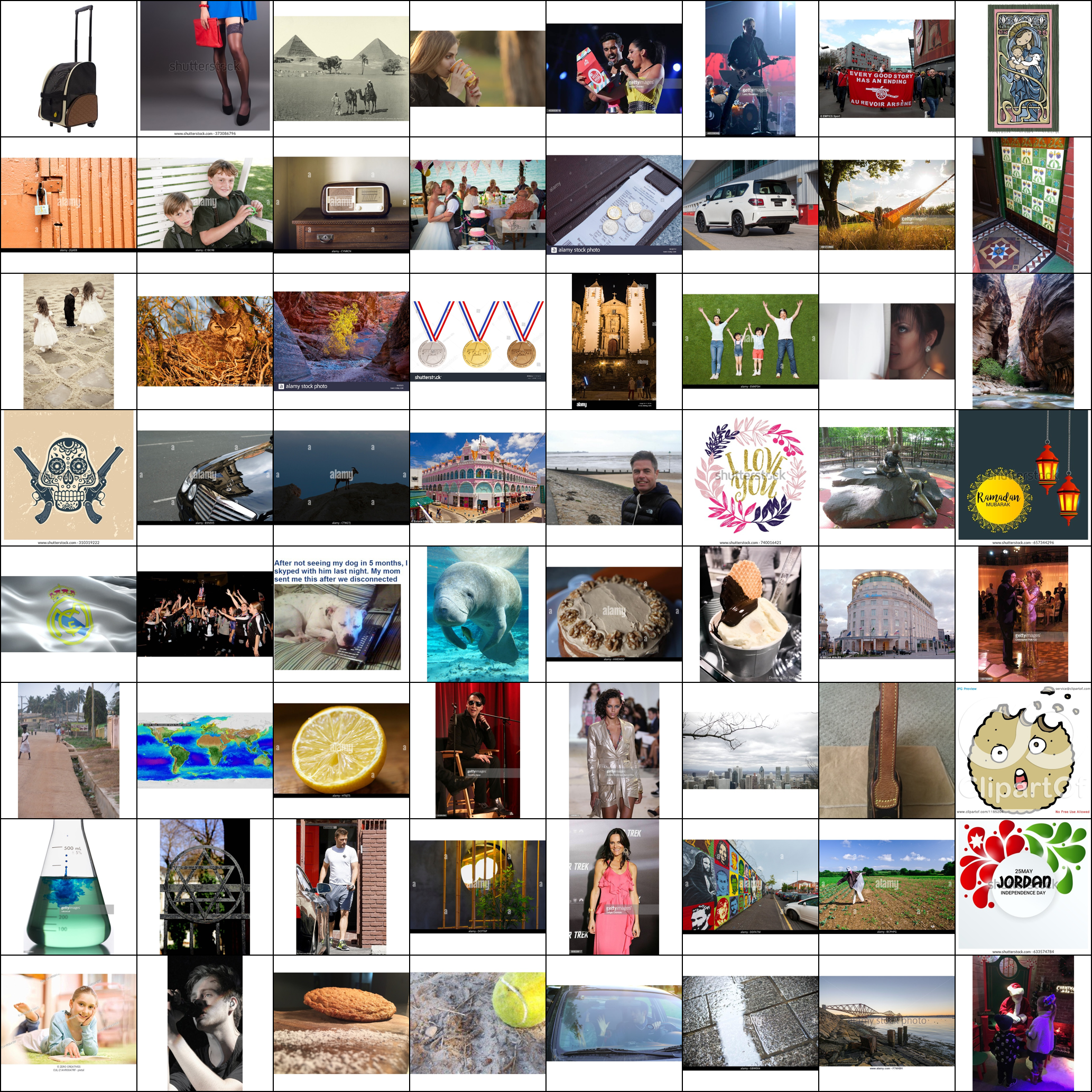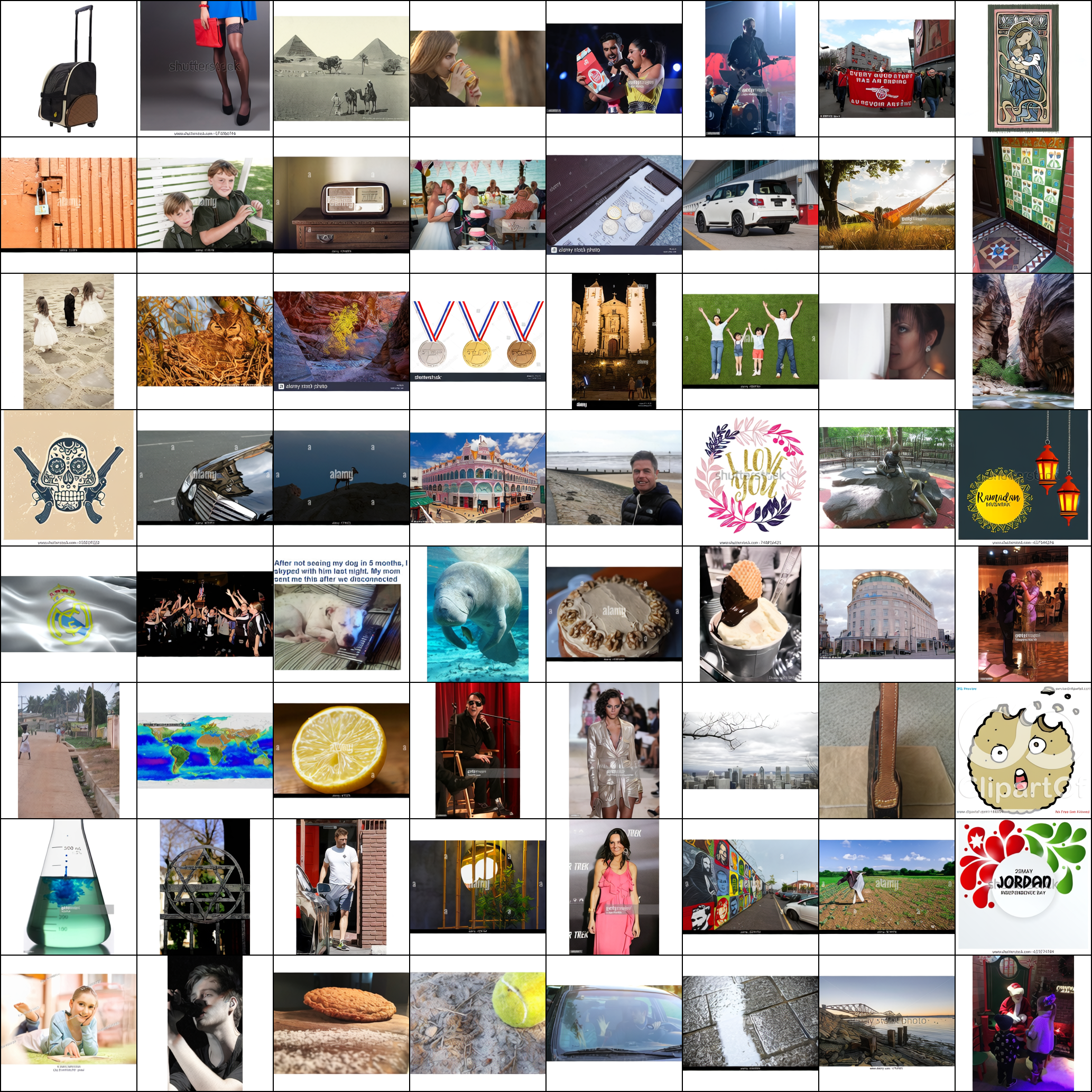UNet-Style VAE for 256x256 Image Reconstruction
This model is a UNet-style Variational Autoencoder (VAE) trained on the CC3M dataset for high-quality image reconstruction and generation. It integrates adversarial, perceptual, and identity-preserving loss terms to improve semantic and visual fidelity.
Architecture
- Encoder/Decoder: Multi-scale UNet architecture
- Latent Space: 32-channel latent bottleneck with reparameterization (mu, logvar)
- Losses:
- L1 reconstruction loss
- KL divergence with annealing
- LPIPS perceptual loss (VGG backbone)
- Identity loss via MoCo-v2 embeddings
- Adversarial loss via Patch Discriminator w/ Spectral Norm
Reconstructions
Training Config
| Hyperparameter | Value |
|---|---|
| Dataset | CC3M (850k images) |
| Image Resolution | 256 x 256 |
| Batch Size | 16 |
| Optimizer | AdamW |
| Learning Rate | 5e-5 |
| Precision | bf16 (mixed precision) |
| Total Steps | 210,000 |
| GAN Start Step | 50,000 |
| KL Annealing | Yes (10% of training) |
| Augmentations | Crop, flip, jitter, blur, rotation |
Trained using a cosine learning rate schedule with gradient clipping and automatic mixed precision (torch.cuda.amp)
Note: Model class will be available for usage once original repository becomes open-source (W.I.P)
- Downloads last month
- 16
Inference Providers
NEW
This model isn't deployed by any Inference Provider.
🙋
Ask for provider support
Dataset used to train gabehubner/vae-256px-32z
Evaluation results
- FID on google-research-datasets/conceptual-captionsself-reported2.557
- LPIPS on google-research-datasets/conceptual-captionsself-reported0.057
- ID-similarity on google-research-datasets/conceptual-captionsself-reported0.000

